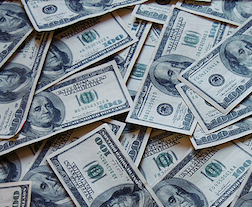
Eric Sterling has an interesting piece at Forbes looking at the big picture economic impact of the War on Drugs.
Today, tens of millions of Americans — would-be consumers – because they have been convicted of a drug offense, aren’t earning what they could earn without a record. Our prison population, estimated as high as 2.3 million persons, is out of the car market. Ford and GM should calculate how many cars they could sell in the U.S. if our imprisonment rates were close to those of their European or Japanese competitors (instead of 7-to-10 times higher). How many cars could they sell if tens of millions of Americans did not have a conviction-suppressed income? A reduced average household income and credit capacity suppresses sales of goods and services for almost every American business. While most of those offenses were instances of youthful bad judgment, the consequences for the economy last for decades.
The business community needs a complete economic analysis of the impact of drug policy. In the 1980s, war on drugs policies were not on the radar of business or investors at all. Today, the intensity of global competition and the fragility of our domestic economy require management and investors to fully understand how American drug policy plays with their profits. Every investor should analyze how much the costs of drug policy shrink return on investment. [Forbes]
Other than Eric Sterling, and perhaps occasionally others in the reform movement, I don't hear anyone asking these kinds of questions. It's an entire category of drug war cost that has simply never been measured.
This gets back to a point I've made often here, which is that we've really never had anything approaching a full accounting of all the costs created by our drug laws. I can't imagine how such a thing could even be conceived. Things like the damage to virgin forests caused by illicit marijuana cultivation, the number of crimes that go unsolved because drug-involved witnesses wish to avoid police contact, the extent to which police corruption compromises costly law enforcement expenditures; all these things and many more are horrendous in their effects, incalculable in their scale, and yet rarely even acknowledged outside the realm of reform advocacy, let alone quantified in the course of the raging debate over whether these policies are worth their price-tag.
In other words, however harmful you believe the War on Drugs to be, it is almost certainly considerably worse. And whatever benefits one expects to enjoy following the fall of prohibition, the true and total impact of effective reforms could exceed anyone's expectations by addressing problems that should have been blamed on the drug war but weren't. I suppose there's only one way to find out.
Add new comment